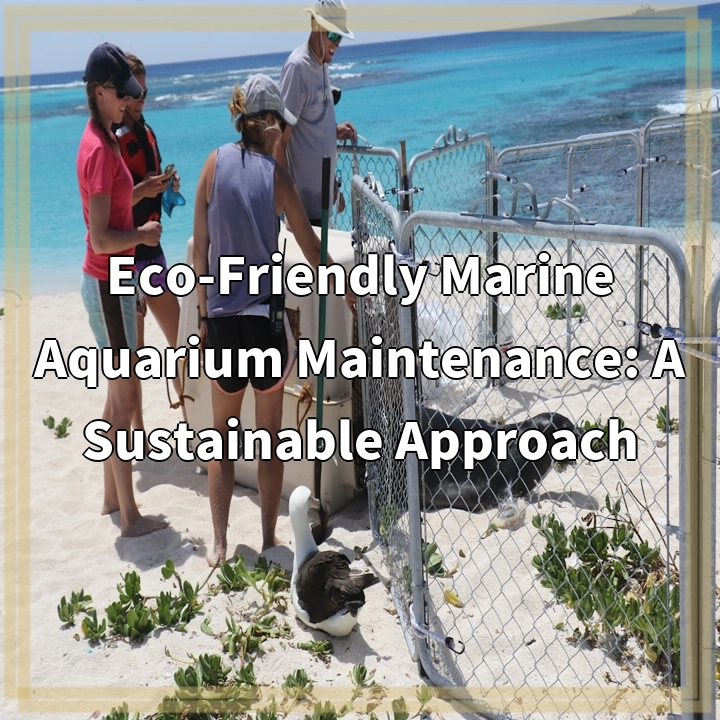
What is Eco-Friendly Marine Aquarium Maintenance?
Marine aquariums are a popular hobbyist pastime, allowing enthusiasts to bring a piece of the underwater world into their homes. However, traditional aquarium maintenance practices often harm the environment. Eco-friendly marine aquarium maintenance is a sustainable approach that aims to minimize the negative impact of these practices on the delicate marine ecosystem.
This approach involves adopting practices that prioritize the well-being of aquatic life, minimize waste generation, and conserve resources. By implementing eco-friendly practices, aquarium enthusiasts can enjoy their hobby while contributing to the preservation of marine biodiversity.
Real-World Problems Associated with Traditional Marine Aquarium Maintenance
Unfortunately, many traditional marine aquarium maintenance practices contribute to environmental degradation. Understanding these issues is crucial in transitioning to a more sustainable approach. Here are some significant real-world problems:
1. Overuse of Chemicals
Traditional aquarium maintenance often involves the use of various chemicals, such as detergents and disinfectants, for cleaning purposes. These chemicals can have harmful effects on marine life when they are introduced into the aquarium water. They can disrupt the delicate balance of the ecosystem and adversely affect the health of fish, corals, and other organisms.
2. Excessive Energy Consumption
Aquariums require a constant supply of electricity to power pumps, filters, and lighting systems. Traditional setups often consume excessive amounts of energy, putting pressure on power grids and contributing to greenhouse gas emissions. Additionally, the extraction and generation of energy from non-renewable sources can further impact the environment.
3. Lack of Sustainable Sourcing
The global aquarium trade sometimes involves capturing or harvesting marine species in unsustainable ways. This can lead to overfishing, habitat destruction, and threats to biodiversity. The demand for exotic and rare species in the aquarium trade can put additional stress on these delicate ecosystems.
4. Improper Waste Management
Improper waste management is a significant issue in traditional marine aquarium maintenance. Waste generated from excess food, fish waste, and other debris can accumulate and create an imbalance in the aquarium ecosystem. Furthermore, the disposal of these wastes can pollute water bodies and harm marine life.

Solutions for Eco-Friendly Marine Aquarium Maintenance
Addressing the real-world problems associated with traditional marine aquarium maintenance requires adopting sustainable solutions. Here are some key steps to promote eco-friendly practices:
1. Use Natural Cleaning Methods
Instead of relying on harmful chemicals, try using natural cleaning methods. For example, you can use vinegar and water solutions, algae scrubbers, or magnetic glass cleaners. These methods are effective in maintaining a clean aquarium without posing risks to aquatic life.
2. Optimize Energy Efficiency
To reduce energy consumption, consider investing in energy-efficient equipment, such as LED lights, which consume less electricity and generate less heat. Additionally, make it a habit to turn off unnecessary equipment when not in use, and adjust the lighting and filtration systems to ensure they are only running as required.
3. Choose Sustainable Sources
Prioritize supporting aquarium suppliers that practice sustainable sourcing. Look for retailers that follow responsible collection and breeding practices. Opt for captive-bred or sustainably sourced marine species to avoid contributing to the depletion of wild populations and the destruction of habitats.
4. Implement Proper Waste Management
Establish a proper waste management system for your aquarium. This includes regular maintenance routines, removing excess waste and uneaten food, and monitoring water parameters to prevent imbalances. Consider composting organic waste or disposing of it responsibly to minimize its impact on the environment.















